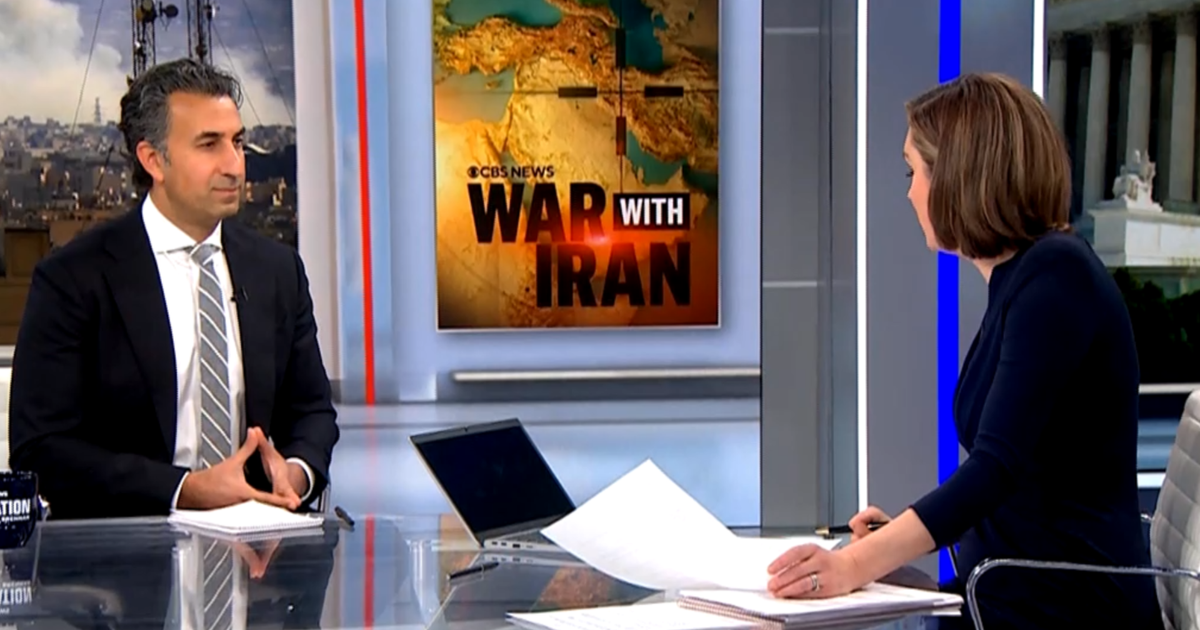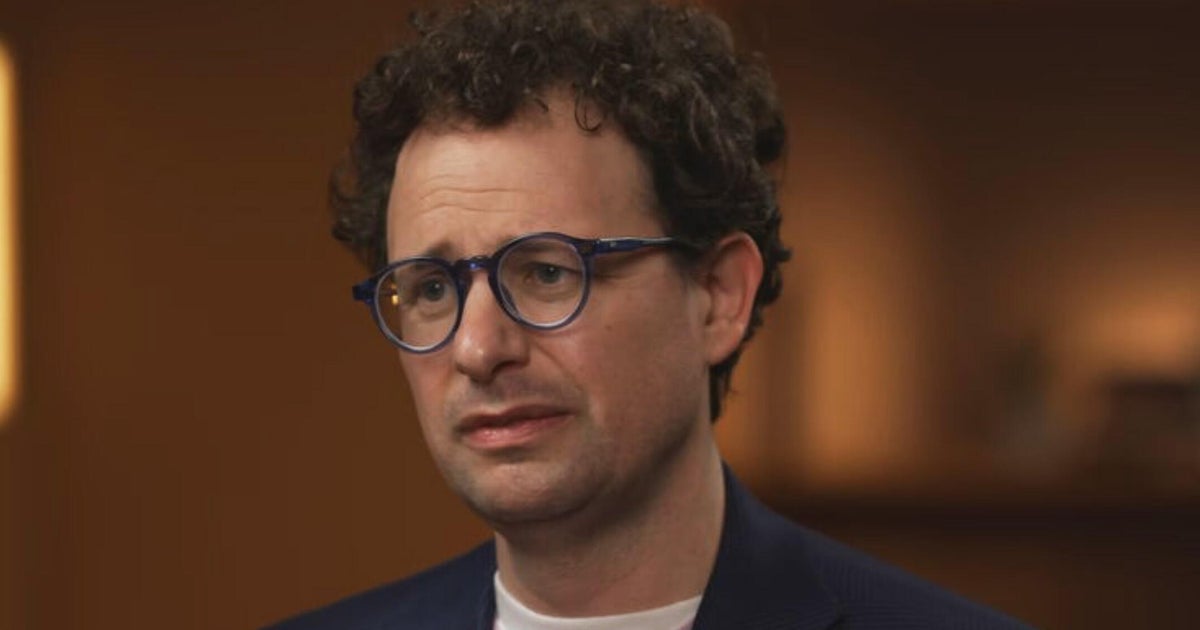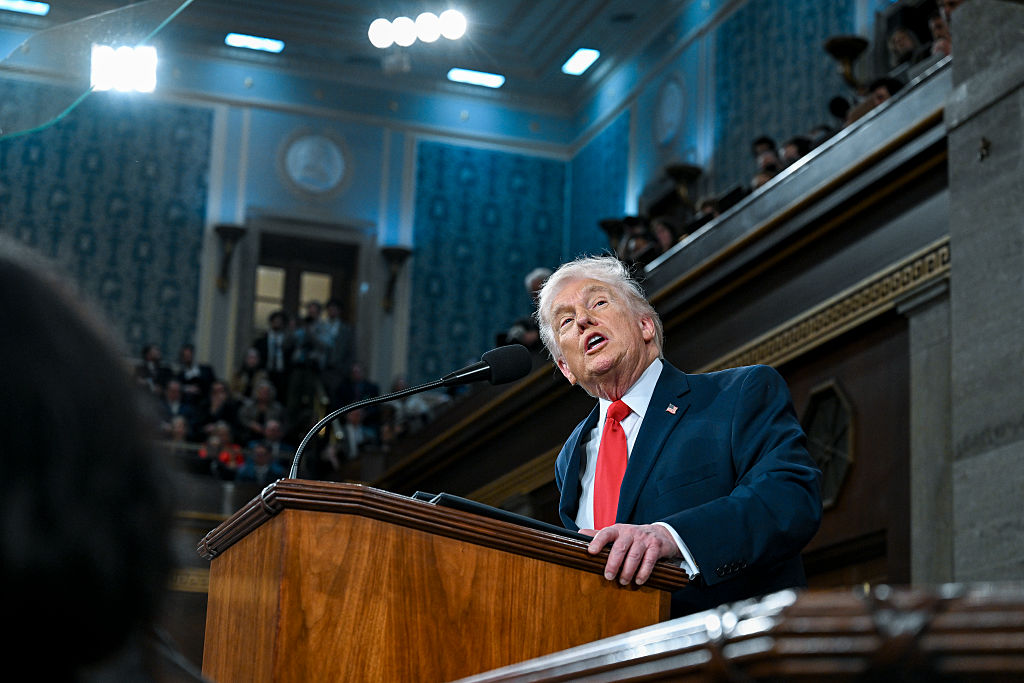Transcript: Chris Krebs on "Face the Nation," December 6, 2020
The following is a transcript of an interview with former CISA Director Chris Krebs that aired Sunday, December 6, 2020, on "Face the Nation."
MARGARET BRENNAN: For more on the security of the 2020 election, we want to go now to the former director of the Cybersecurity and Infrastructure Security Agency, Chris Krebs. Good to have you here.You watched that rally--
CHRIS KREBS: Good morning, MARGARET.
MARGARET BRENNAN: Good morning. You watched that rally. I know that because you tweeted last night. And you said it was an "active, coordinated disinformation campaign to undermine confidence in our elections." Why do you think the commander in chief is doing that?
KREBS: Look, I- I don't know if it's intentional or if it's willful blindness, but the- the result of the 2020 election is clear. The key states certainly have certified over the last several days and will continue to certify in the run up to the seating of the Electoral College on December 14th. But the- this race is over. We've got to get ready for January 20th and the next administration.
MARGARET BRENNAN: But just 27 congressional Republicans have acknowledged Joe Biden's victory as- as president elect. That's 27 out of 249.
KREBS: Yeah.
MARGARET BRENNAN: Why are the majority of Republicans remaining silent on what you're describing here as a security risk?
KREBS: I- I again, I can't speak to what their motivations are. To those that have spoken up, it's the right thing to do. And I think the rest of them have to acknowledge that the system in place to conduct the election was legitimate, and particularly in the House, they've accepted their outcomes and their races. I don't see any difference here between the- the presidential race. It is well past the time where all leaders of the Republican Party need to accept the outcome of this race, and move on and- and accept that Joe Biden is the president elect.
MARGARET BRENNAN: When you say a disinformation campaign, I mean, you're looking at this from a national security point of view, where you were trying to stop foreign governments from undermining confidence in our elections. What do you think the consequence of this coming from the president in the United States is on our democracy?
KREBS: I do think it's corrosive to confidence in the election, in- in democracy. You know, the point of elections, it's often been said by election officials, is that you're trying to convince the loser that they lost. But to do that, you have to have willing participants that are- that are honest brokers. And we're just not seeing this right now. You know, every court case, or filing has been- been rejected by- by the courts. And so any fraud claims, any security claims, any- any sorts of things along those lines, we're just not seeing supportive- supporting evidence. And again, it is time to move on. You should have confidence, particularly Georgia voters should have confidence in the election and they need to get out for the January 5th Senate runoff.
MARGARET BRENNAN: You have described yourself as a- as a lifelong Republican. You served President Bush. You served under President Trump. Why do you think the party is scared to do all the things you're laying out?
KREBS: Again, I- I don't know what is behind this, what their motivations are, but- but again, it is time for leaders in the national security community and in the- in the Republican Party to stand up to accept the results and move forward. We cannot allow this to continue, certainly not past January 20th, certainly not for the next four years. Any sort of lost cause move- movement would be just horribly destructive to- to democracy.
MARGARET BRENNAN: So in your former agency, before President Trump fired you, you had a variety of responsibilities on the cyber front, and you've talked about disinformation online around the vaccine for example. We know the State Department has quietly called out Russia for spreading disinformation about the vaccine. Why isn't Homeland Security right now launching a campaign to educate the American public about a vaccine being safe?
KREBS: So, early on in COVID, in fact, it was January- March 13th was the day I think the world changed for most folks, we launched an effort to both help the vaccine developers as well as the public health care institutions, hospitals, the- the protective equipment manufacturers and, yes, the therapeutics and- and vaccine developers. We launched a campaign, a cybersecurity focused campaign, to secure their- their- their- their businesses and their enterprise. But at the same time, we saw some disinformation emerging related to the coronavirus, including just farcical claims like 5G telecommunications towers-, telephone towers spread the coronavirus. We actually saw vandalism in the United Kingdom. So, we wanted to get that here. FEMA did launch a- a similar rumor control effort on- on the coronavirus. We are going to have to do much, much more going forward to counter the vaccine claims that we're going to hear, the anti-vaxxer type claims. Those have been previously and will be in the future, supported and amplified by foreign powers that don't share our same interests. So, we- we need to get mechanisms like that up and running fast.
MARGARET BRENNAN: How much of that is foreign and how much of that is domestic?
KREBS: It- it's hard to say. There's certainly both, but the more that we get professionals like Dr. Gottlieb, who I worked with closely back in government, the more we get professionals like that out there describing the facts about the vaccine, that's going to be one of those critical aspects going forward.
MARGARET BRENNAN: Homeland Security disclosed this past Thursday that cyber-attacks are underway at companies and government organizations involved in distributing the vaccine. IBM went public saying they were very sophisticated, which indicates that a country, another government was possibly behind it. Who has the ability and the intent to do something like that?
KREBS: So the traditional powers, the- the big four of Russia, China, Iran and North Korea, we have- we have seen to some extent all four of those- those countries doing some kind of espionage or spying, trying to get intellectual property related to the- the- the vaccine and, in fact, just how we are doing as a country policy wise and in terms of health impact. What we have been thinking through, what we had been thinking through at CISA was- was not just the vaccine developers, but their entire supply chain and really trying to look through those for those critical weak spots. We called it the- the ball bearing strategy, looking for those- those key elements that could- could cause the entire process to- to collapse. And that's going to be critical going forward. So, it's not just about Moderna and some of the others that are developing the vaccine. It's their supply chains. It's the distribution channels, public health institutions. Those are the folks that we have to continue to spread cyber security support to from the national security community and from the private sector.
MARGARET BRENNAN: All right. Important message over the coming weeks. Thank you, Chris Krebs, for joining us today. And we'll be back in a moment.



